THE 705 EROGENOUS ZONE
2,000+ SQFT MURAL on THE 705 (entire building)
SIN CITY GALLERY, LAS VEGAS NV 2017
curated by Laura Henkel
building donated by Alison Chambers and "Downtown" Steve Franklin
materials donation by Brian Paco Alvarez, Zappos
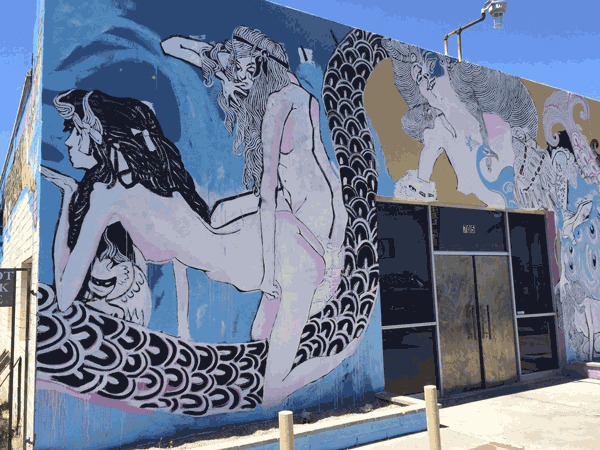
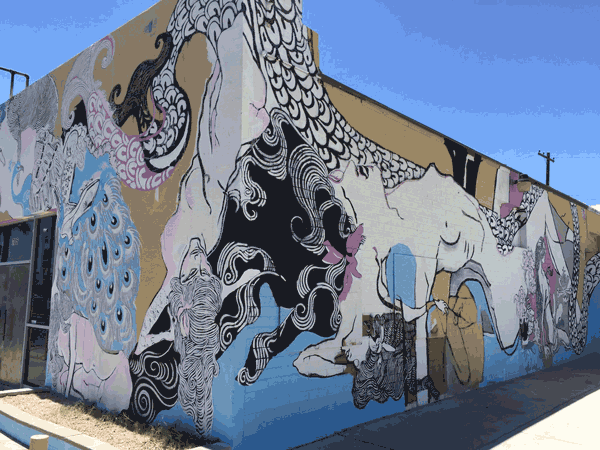
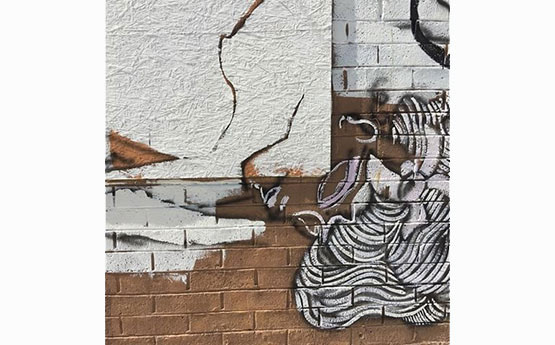
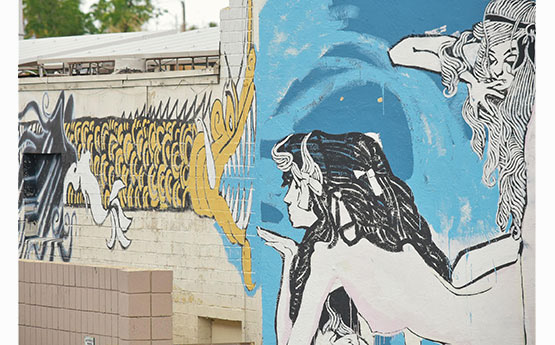
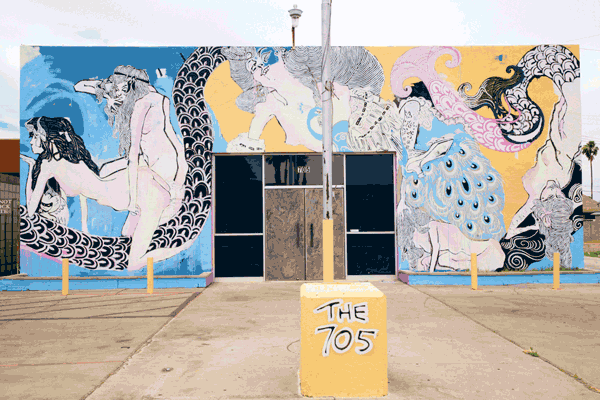
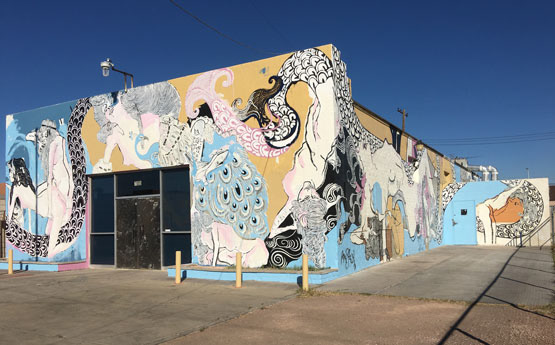
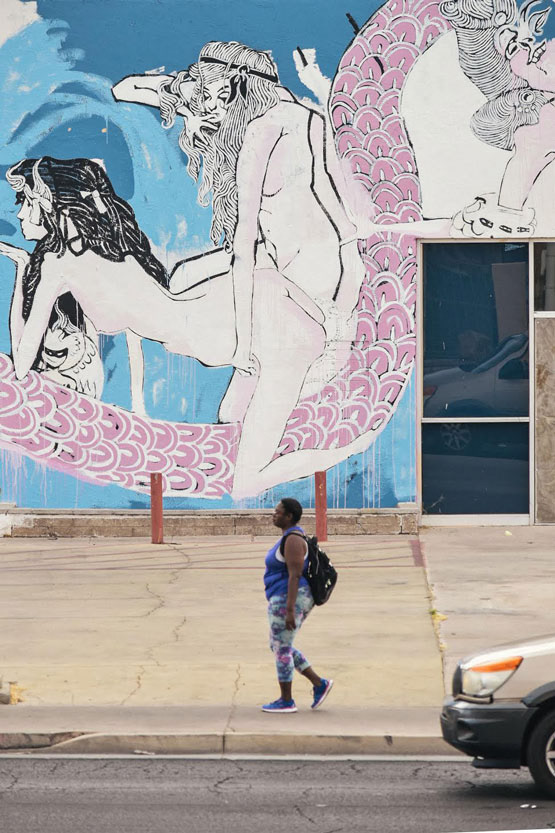
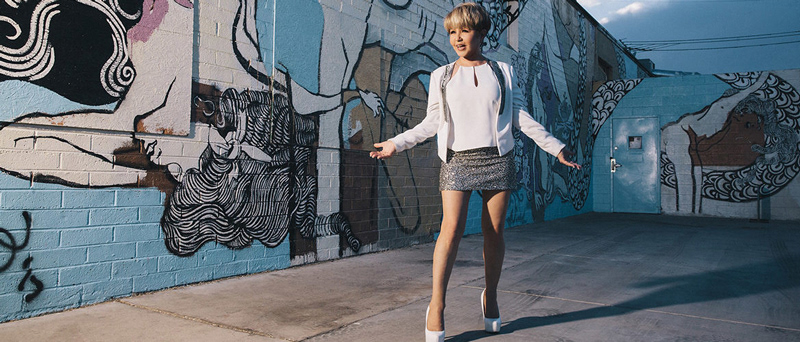
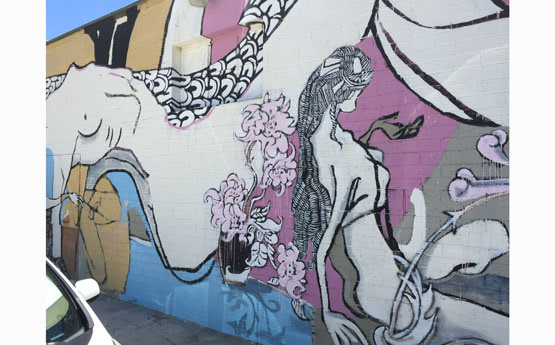
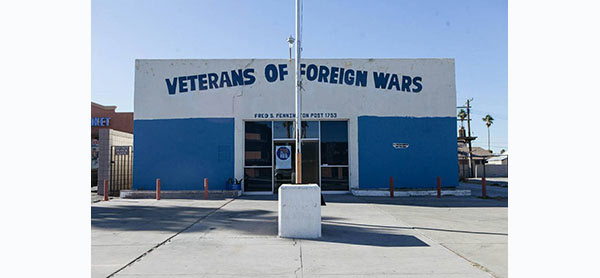
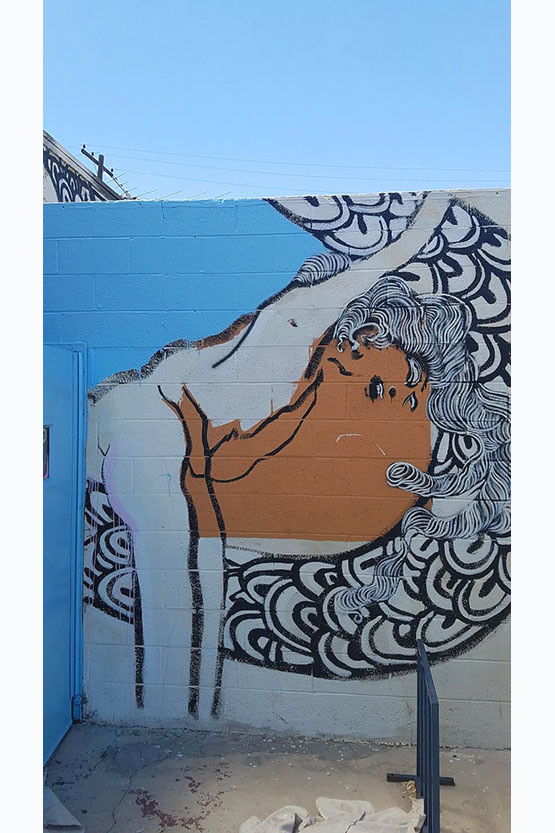
photos by Krystal Ramirez, Marlene Greenfield, Mikayla Whitmore and Laura Henkel
Aaron Sheppard has a complex. Well, a few of them. But on this warm and breezy mid-May day, while he is in the beginning stages of his latest mural, The 705 Erogenous Zone, the artist was worried about putting his suggestive work on three very public walls in a low-income, Latino and black community in the Cultural Corridor. “Sometimes I feel like I don’t have the authority to place this imagery in public,” he says. “Fuck, here comes another white boy coming to change what little we got left.”
Sheppard, a painter, sculptor and performer originally from Nebraska who received his MFA at UNLV, is now living in a small desert home in Joshua Tree where he says he lives in his “artist bubble.” Shook by the presidential election, Sheppard began to question the validity of his political and social opinions as a white male. He says people regularly comment on his height, or assume he’s in a band, a presumption that pales in comparison to being judged by race. “I don’t feel so secure in my place to address such things. And that’s something that I have to figure out,” he says.
And while the mural on 705 N. Las Vegas Blvd. wasn’t used as a soapbox, the imagery in this particular location makes a statement on its own. His work often references Franz von Bayros, the Austrian illustrator whose work depicts the white bourgeois class in decadent, sexual scenarios from a voyeuristic hetero-male perspective. Sheppard changes the gender and positions of the subjects in his own work. What place does this imagery serve as a backdrop in the Cultural Corridor? But Sheppard was given free reign on the project and despite friends advice urging him to ask for forgiveness, not permission, he showed some restraint.
“I can’t put big dicks on these women. I think that’s part of the game,” Sheppard says laughing. “How do you paint these intimate, erotic, sexual images on a large public scale that is still provocative but not—for lack of a better word—pornography?”
Make that dick a dragon, that’s how. The mural shows women flowing into one another, riding the dragon’s tail, which wraps around the three walls. He treated the project as a large canvas with organic painterly strokes. And although he is painting metaphorically, it doesn’t take away his concern that the imagery may be too out of place. After politely asking a passerby to not pee on the mural, the two got to talking. Sheppard asked the bystander, “Let me ask you, as a black man, how would you view this, how do you see this?” Sheppard says the man’s response was, “You gotta paint with your heart.” It eased Sheppard’s concern.
Laura Henkel, owner of Sin City Gallery, which specializes in erotic fine art, showed Sheppard’s “Sensitive White Boy Syndrome” exhibit at her gallery in May. To her, the mural isn’t that erotic, even though some people say it is. “Typically you see a lot more in erotic art. This piece allows people to use their imagination,” Henkel says. “The work is provocative and engages conversation as art should.”
Throughout the two-week painting process, people showed up offering him food, some inviting him back to their homes for dinner… or for sex. He got most of his work done at night because of the continual visitors and conversations he had during the day. There was one tagger who marked his piece while he was painting (he said if he saw him he would have offered him a spray can) but other than that, he says everyone who stopped by was encouraging. By the time he completed the project, his confidence in the location completely changed. He wouldn’t have had the freedom to paint with his heart, like the bystander suggested, and wouldn’t have had the support from the community. “I wouldn’t have it in any other place,” he says.
-Jessie O'Brien, An Erogenous Zone in the Cultural Corridor, DTLV, June 2, 2017

